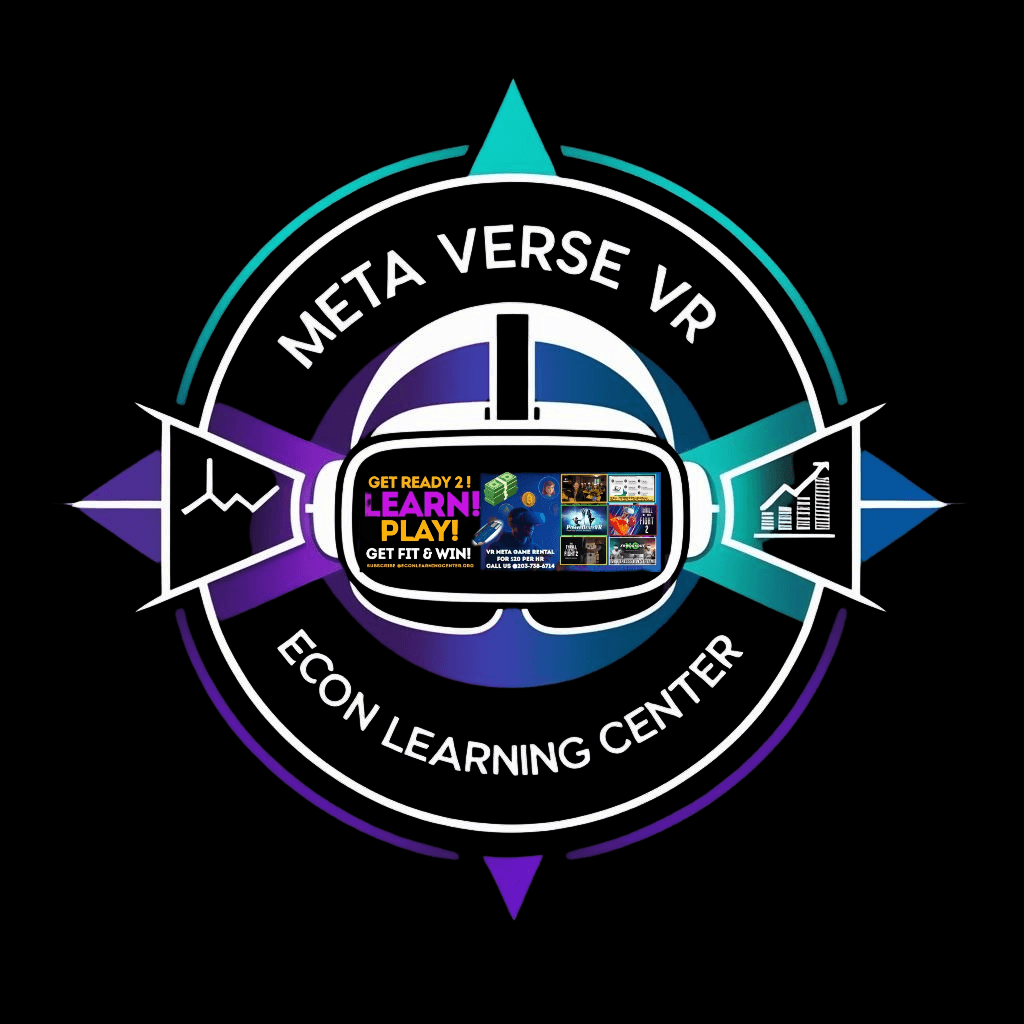- BOOK ME HERE
- About
- Giveaway Gift Rewards Contest
- ENROLL HERE
- Schedule For Our Personal Financial Development 1 Year Course
- The Challenge
- ELC SHOP CLUB
- Credit Repair and Financial Education Services
- Watch Our Business Presentation
- Contact
- FAQ
- Econ Learning Center Blog
- Terms of service
- Econ Learning Center Channel
- Credit Secrets Live Tv
- ELC Meta Verse Vr Fitness ED Games
Exploring the Metaverse: A New Frontier in Financial Literacy for Kids
Understanding the Metaverse
The metaverse is a rapidly evolving digital universe that combines virtual reality, augmented reality, and the internet to create immersive, interactive experiences. For many, it represents a new dimension of social interaction, entertainment, and even commerce. However, it's also emerging as an incredible tool for education, particularly in teaching children about financial literacy in engaging and meaningful ways.
As more aspects of our lives become digital, the importance of understanding financial concepts and managing resources online becomes more apparent. The metaverse provides an innovative platform to introduce children to these concepts in a setting that is both familiar and stimulating.

The Importance of Financial Literacy for Kids
Financial literacy is a critical life skill that empowers individuals to make informed decisions about managing money. Teaching these skills at a young age lays a foundation for responsible financial behavior in adulthood. In the past, lessons on topics like saving, budgeting, and investing were often limited to traditional classroom settings or parental guidance.
However, the metaverse offers a unique opportunity to transform these teachings into interactive experiences that resonate with kids. By engaging in virtual worlds where they can earn, spend, and save digital currency, children can learn valuable lessons about financial responsibility and decision-making.
How the Metaverse Enhances Learning
The interactive nature of the metaverse makes it an ideal environment for learning. In these virtual spaces, children can engage in role-playing scenarios that simulate real-world financial situations. This hands-on approach allows them to practice financial skills in a safe environment without real-world consequences.
For example, kids can participate in games where they manage a virtual business or budget for household expenses using in-game currency. By making mistakes and learning from them, they gain insights into crucial concepts such as opportunity cost and the importance of saving for future needs.

Practical Applications and Tools
Several platforms within the metaverse have already begun to incorporate financial literacy elements into their design. Educational games and apps are being developed to help children understand the basics of economics and personal finance. These tools often include:
- Virtual banking systems: Simulated environments where kids can open accounts, deposit money, and track their spending.
- Investment simulations: Activities that allow children to invest in virtual stocks and observe market fluctuations.
- Entrepreneurial challenges: Games that encourage kids to start and manage their own virtual businesses.
The Role of Parents and Educators
While the metaverse offers exciting potential for teaching financial literacy, parental and educational guidance remain essential. Parents and teachers can help children navigate these virtual environments by discussing the lessons learned and relating them to real-life situations. This collaborative approach ensures that children not only enjoy the experience but also grasp the underlying financial principles.

Moreover, parents can set guidelines for screen time and monitor the content their children access within the metaverse. By fostering an open dialogue about their experiences, parents can reinforce positive financial habits and encourage critical thinking.
The Future of Financial Education
The integration of financial literacy into the metaverse marks a significant step forward in educational innovation. As technology continues to advance, these virtual worlds will become even more sophisticated, offering richer experiences for young learners.
Embracing this new frontier in education will require ongoing collaboration between developers, educators, and parents to ensure that content remains relevant and beneficial. By doing so, we can equip the next generation with the skills they need to navigate an increasingly digital world with confidence and competence.
